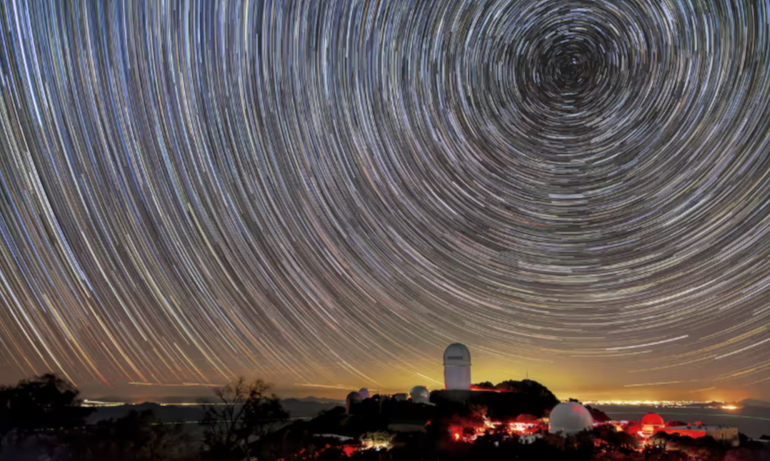Recent findings from the Dark Energy Spectroscopic Instrument (DESI) suggest that dark energy, the mysterious force driving the expansion of the universe, may not be constant as previously thought.
Instead, researchers report signs that it has weakened over time. If confirmed, this discovery could lead to a major shift in our understanding of cosmology and raise new questions about the future of the universe.
Dark energy was first identified in 1998 when astronomers observed that the universe’s expansion was accelerating. This contradicted earlier expectations that gravity would slow the expansion over time. Since then, dark energy has been assumed to be a constant force making up about 70% of the universe’s energy content.
However, new data from DESI suggests that dark energy may have reached a peak when the universe was about 70% of its current age and has since declined by approximately 10%. While the expansion of the universe is still accelerating, this weakening trend could imply that dark energy is not a fixed property of space but a dynamic force that changes over time.
If dark energy continues to decrease, it could mean a shift away from the long-held theory of an eternally expanding universe that ends in a “big freeze,” where galaxies drift apart indefinitely. Instead, the weakening of dark energy opens the possibility that the expansion of the universe could eventually reverse, leading to a “big crunch,” where the cosmos collapses back in on itself.
Professor Carlos Frenk, a cosmologist at Durham University and a member of the DESI team, stated:
“There is something pushing galaxies away from each other, but it is not constant. It is declining.”
This suggests that the nature of dark energy may be more complex than previously thought.
While some scientists are convinced by the DESI findings, others remain cautious. The results do not yet meet the five-sigma level of certainty required in physics to confirm a discovery. Additional observations and analysis will be needed to determine whether this trend is real or a statistical anomaly.
Professor George Efstathiou from the University of Cambridge urged patience, saying:
“The measurements do not yet provide decisive evidence for evolving dark energy. They may do as DESI accumulates more data.”
DESI’s ongoing work, along with future observations from the European Space Agency’s Euclid mission and NASA’s upcoming Roman Space Telescope, will provide further insights into dark energy’s nature. If confirmed, these findings could lead to a major revision of our understanding of the fundamental forces shaping the cosmos.
As Professor Ofer Lahav from University College London noted, the potential discovery is both exciting and challenging:
“For 20 years, we’ve been stuck with dark energy as a mystery. Now physicists have new questions to explore.”
The Guardian, BBC, and the New York Times contributed to this report.










The latest news in your social feeds
Subscribe to our social media platforms to stay tuned